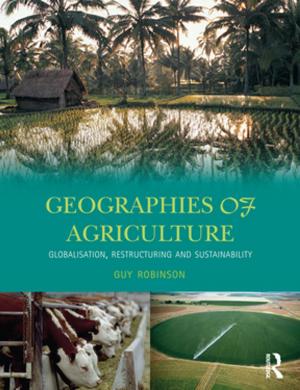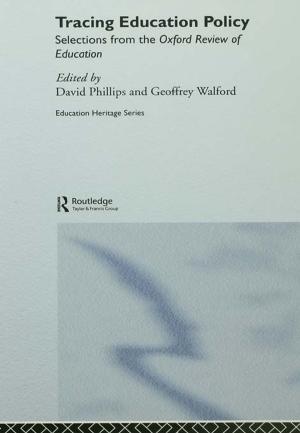Seeking Sustainability
On the prospect of an ecological liberalism
Business & Finance, Economics, Theory of Economics| Author: | G. J Paton | ISBN: | 9781136879418 |
| Publisher: | Taylor and Francis | Publication: | November 23, 2010 |
| Imprint: | Routledge | Language: | English |
| Author: | G. J Paton |
| ISBN: | 9781136879418 |
| Publisher: | Taylor and Francis |
| Publication: | November 23, 2010 |
| Imprint: | Routledge |
| Language: | English |
The ideas of neoliberalism perpetuate a disembedded and dichotomised view of economy-ecology relations. The renewed interest in climate change and sustainability attests to the lack of progress achieved by the ‘sustainable development’ regime and to the need for more appropriate frameworks for guiding social organisation toward ecological sustainability. This book is born of the need for a critique of current approaches to environmental policy and governance and the search for alternative sustainability frameworks.
Utilising a conceptual approach based on the Polanyian concept of ‘embeddedness’, this book argues that the links between economic theory, neo-liberalism, and the current regime of sustainable development, have rendered ‘sustainability’ a discursive frame in the service of economic rather than ecological goals. In rejecting the integrity of ‘environmental neo-liberalism’, Paton argues there are some clear points of divergence between liberalism and neo-liberalism. She subsequently examines separately the impact on liberalism of efforts to integrate environmental concerns in order to determine if therein lies the potential for an effective reformist politics of ‘ecological sustainability’.
The ideas of neoliberalism perpetuate a disembedded and dichotomised view of economy-ecology relations. The renewed interest in climate change and sustainability attests to the lack of progress achieved by the ‘sustainable development’ regime and to the need for more appropriate frameworks for guiding social organisation toward ecological sustainability. This book is born of the need for a critique of current approaches to environmental policy and governance and the search for alternative sustainability frameworks.
Utilising a conceptual approach based on the Polanyian concept of ‘embeddedness’, this book argues that the links between economic theory, neo-liberalism, and the current regime of sustainable development, have rendered ‘sustainability’ a discursive frame in the service of economic rather than ecological goals. In rejecting the integrity of ‘environmental neo-liberalism’, Paton argues there are some clear points of divergence between liberalism and neo-liberalism. She subsequently examines separately the impact on liberalism of efforts to integrate environmental concerns in order to determine if therein lies the potential for an effective reformist politics of ‘ecological sustainability’.















